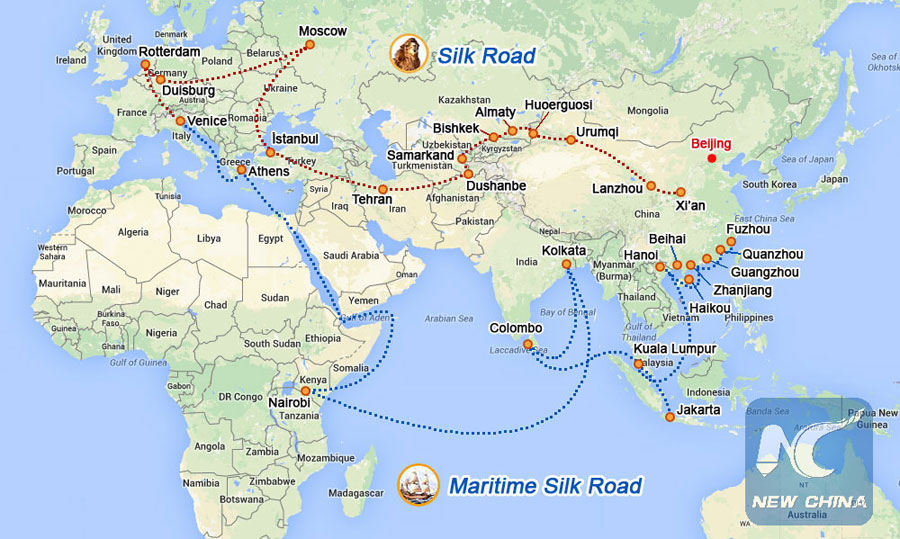By Bihari Krishna Shrestha (Kathmandu May 17, 2017)–The reason the Belt and Road accession document was signed just now and not earlier seems to be that, while Prachanda was under commitment to India to obey all of the latter’s commands including staying away from China as much as possible, given the Nepali people’s unequivocal support for One Belt One Road, he saw some political capital to be made by signing the OBOR agreement at the far end of his tenure before relinquishing the reins of power to Deuba.
So, it has been Prachanda’s opportunistic calculations than the considerations of the greater good of the nation that seems to be at heart of the recent event. So, no use lamenting “lack of preparation” or of “national debate” took place. The kind of politicians we have at the helm, these words are not even part of the vocabulary they know.
Regarding Belt and Road Initiative (BRI) benefits to Nepal, the biggest of them all is that it would effectively end our near-exclusive dependence on the sadistic neighbor to the south, India, which neither develops their own country–800 million of their 1.3 billion people remain “impoverished and dispossessed” thus making India home to world poverty even after 70 years of independence–nor allows the small neighbors do so.
India has blockaded landlocked Nepal three times, dumped Bhutanese refugees on Nepal and hosted, trained and aided the Nepali Maoists who went on to slaughter 18,000 Nepalese, among many other atrocities. The BRI will effectively end all of that for all the times to come.
Additionally, Nepalese will be able to consume better and cheaper consumer goods, benefit from increased employment opportunities to be generated by these major infrastructures, and participate in the Chinese markets through more exports in goods and services in which Nepal enjoys comparative advantage.
Besides, once the railway line makes it to Lumbini, a place that is only half an hours of rickshaw ride from India, it is going to generated unprecedented pressure among the people of Uttar Pradesh and Bihar for dealing with China through this railway link. At that point, Kashmir or no Kashmir, India will be voluntarily requesting Nepal and China to join OBOR through Lumbini.
Thus, a new foundation for tripartite cooperation between Nepal, India, and China will be laid through OBOR connectivity. Then, from that point on, India will be one of the friendliest of Nepal’s neighbors, because the former will continue to beg with Nepal for the favor of water and power supply from Nepal’s southbound rivers.
That will also mark the end of the “Madhesi menace” because India will be forced to end support to the small cabal of the first generation Indian immigrant, self-declared Bharatbadi Madheis politicians who currently remain in Nepal more as India’s Trojan horses.
(Shrestha is a water resource expert. He made the aforementioned comment in Kantipur Online on May 16, 2106)

